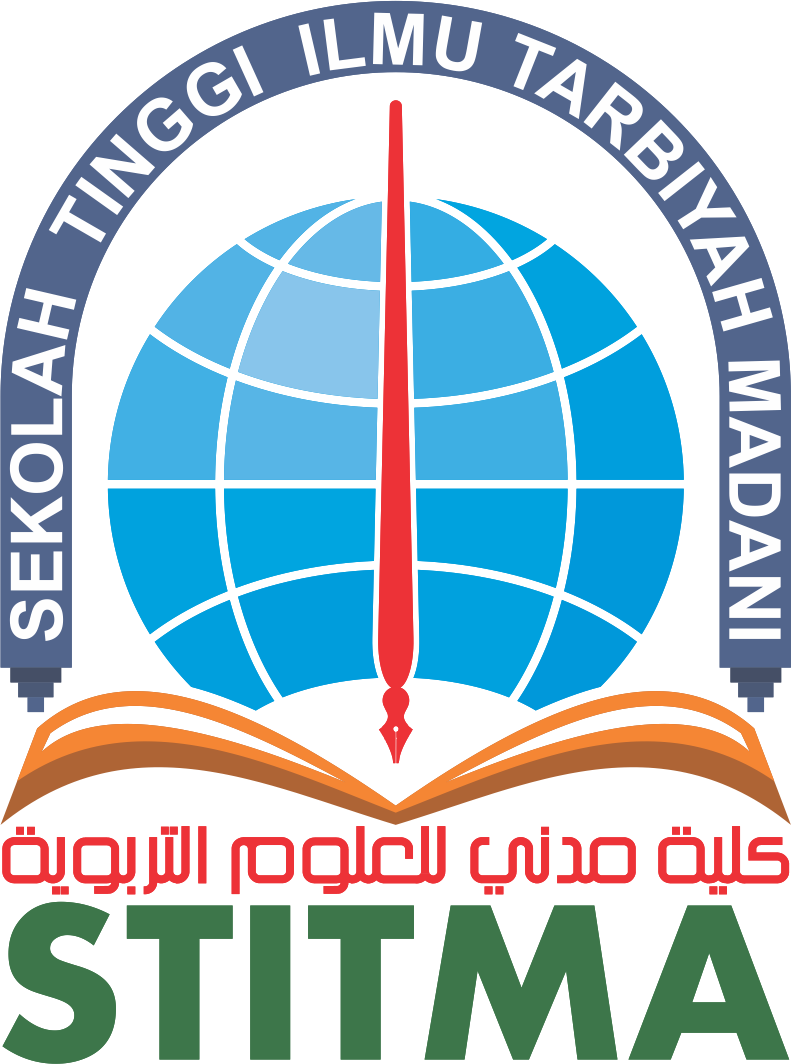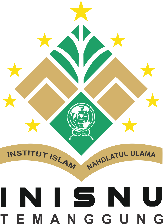Analysis of moral education values in the book 'minimalist life according to the prophet' by ratnani latifah
DOI:
https://doi.org/10.59944/jipsi.v3i3.361Keywords:
Moral Education, Minimalist Lifestyle, Minimalist LifeAbstract
Education is a highly suitable medium for enhancing human personality and intelligence. To ensure that its implementation produces the desired generation, education is continuously developed and expanded. In relation to the current state of education, its quality, and the issues it faces, almost everyone agrees that religious education, especially Islamic education, which consists of aqeedah (faith) education, moral (akhlaq) education, and sharia (practical) education, serves as one of the means to address these problems. Moral education functions as a guide for character formation and as the main bulwark in upholding human morality. The objectives of this research include: to describe the values of moral education in the book 'Minimalist Life According to the Prophet' by Ratnani Latifah; to describe the minimalist lifestyle in the book 'Minimalist Life According to the Prophet' by Ratnani Latifah. This research uses a hermeneutic approach with the type of library research and a qualitative descriptive method. The data sources used are primary sources in the form of the printed book 'Minimalist Life According to the Prophet' and secondary sources such as books, journals, articles, the thoughts of the book's author, previous literature studies, and other scientific works focusing on the values of moral education. Furthermore, the data collection techniques include documentation and interviews. Finally, the data analysis uses content analysis techniques. The results of the research indicate that the values of moral education in the book 'Minimalist Life. According to the Prophet' include the values of moral education towards Allah, which encompass worship, asceticism (zuhud), trust in Allah (tawakal), gratitude, and sincerity. The values of moral education towards other people include contentment (qana'ah), humility (tawadhu), patience, being mindful of food and drink, simplicity, charity, visiting the sick, and attending invitations. The minimalist lifestyle taught in the book 'Minimalist Life According to the Prophet' includes appreciating every item owned, valuing experiences over possessions, freedom from clutter, and simplicity in lifestyle.
References
Abdul Muqit. “Makna Zuhud Dalam Kehidupan Prespektif Tafsir Al-Qur’an.” Ta’wiluna: Jurnal Ilmu Al-Qur’an, Tafsir Dan Pemikiran Islam 1, no. 2 (2020): 36–51. https://doi.org/10.58401/takwiluna.v1i2.235.
Abdusshomad, Alwazir. “Penerapan Sifat Qanaah Dalam Mengendalikan Hawa Nafsu Duniawi.” Jurnal Asy-Syukriyyah 21, no. 1 (2020): 21–33. https://doi.org/10.36769/asy.v21i1.95.
Amanda, Bias Tirta Bayu, Wismanto Wismanto, Al Hamida, and Atik Devi Kusuma. “Implementasi Akhlak Kepada Allah Swt Dalam Kehidupan Sehari-Hari Mahasiswa.” JMPAI: Jurnal Manajemen Dan Pendidikan Agama Islam 2, no. 3 (2024): 114–28. https://doi.org/10.61132/jmpai.v2i3.258.
Asror, Chozin, Nur Alfi Muanayah, and Luluk Ifadah. “Implementasi Gerakan Literasi Kitab Suci Pada Masa Pandemi Covid-19 Di Smp Negeri 3 Magelang.” Citra Ilmu XVII (2021): Hlm.38.
Bafadhol, Ibrahim. “Pendidikan Akhlak Dalam Persfektif Islam.” Jurnal Edukasi Islami Jurnal Pendidikan Islam 06, no. 12 (2017): 45–61.
Dahlia, Eis. “Konsep Pendidikan Akhlak Perspektif Imam Al-Ghazali,” 2017.
Druică, Elena, Rodica Ianole-călin, and Andreea-ionela Puiu. “When Less Is More: Understanding the Adoption of a Minimalist Lifestyle Using the Theory of Planned Behavior.” Mathematics, 2023.
Irmi, Rana Farras. “Analisis Nilai- Nilai Pendidikan Akhlak Dalam Novel Ayat- Ayat Cinta Karya Habibyrrahman El- Shirazy,” 2021.
Mauluddin, Moh., and Nur Habibah. “Pola Hidup Sederhana Dalam Kajian Tafsir Maudhu’i.” Al Furqan: Jurnal Ilmu Al Quran Dan Tafsir 5, no. 2 (2022): 231–49. https://doi.org/10.58518/alfurqon.v5i2.1397.
Rambe, Mgr Sinomba, Waharjani Waharjani, and Djamaluddin Perawironegoro. “Pentingnya Pendidikan Akhlak Dalam Kehidupan Masyarakat Islam.” Tadarus Tarbawy : Jurnal Kajian Islam Dan Pendidikan 5, no. 1 (2023): 37–48. https://doi.org/10.31000/jkip.v5i1.8533.
Rozak, Purnama. “Indikator Tawadhu Dalam Keseharian.” Jurnal Madaniyah 1 (2017): 174–87.
Setiawan, Dede, and Silmi Mufarihah. “Tawakal Dalam Al-Qur’an Serta Implikasinya Dalam Menghadapi Pandemi Covid-19.” Jurnal Online Studi Al-Qur An 17, no. 01 (2021): 1–18. https://doi.org/10.21009/jsq.017.1.01.
Soimah, Puji. “Nilai- Nilai Pendidikan Akhlak Dalam Buku Tarbiyah Khuluqiyah Karya Dr. Ali Abdul Halim Mahmud,” 2021, 1–70.
Suryani, Ira, and Wahyu Sakban. “Aplikasi Akhlak Manusia Terhadap Dirinya, Allah SWT., Dan Rasulullah SAW.” Jurnal Pendidikan Tambusai 6, no. 1 (2022): 97–104. https://jptam.org/index.php/jptam/article/view/2832.
Susilawati, Erni, and Novia Winda. “Nilai Pendidikan Akhlak Dalam Novel Tuhan, Aku Kembali Karya Haidar Musytafa.” Jurnal Bahasa, Sastra, Dan Pengajarannya 8, no. 1 (2023): 114–22.
Taufiqurrahman. “Ikhlas Dalam Perspektif Alquran.” Eduprof : Islamic Education Journal 1, no. 2 (2019): 94–118. https://doi.org/10.47453/eduprof.v1i2.23.
Tri Utomo, Sigit, and Ahmad Sa’i. “Urgensi Eksistensi Perpustakaan Sebagai Upaya Pengurangan Perilaku Menyimpang Siswa Di Sekolah.” Libraria 5, no. 2 (2017): hlm. 389. http://journal.iainkudus.ac.id/index.php/Libraria/article/view/2736.
Widyaningrum, Sigit Tri Utomo, and Ana Sofiyatul Azizah. “Implementasi Pendidikan Karakter Religius Remaja Melalui Kegiatan Rutin Pembacaan Kitab Maulid Diba’ Di Desa Dangkel Kecamatan Parakan Kabupaten Temanggung.” JIPSI: Jurnal Ilmu Pendidikan Dan Sains Islam Interdisipliner 1, no. 2 (2022): 84–94. https://doi.org/10.59944/jipsi.v1i2.34.
Yusuf, M, Dona Kahfi, and Moh Toriqul Chaer. “Sabar Dalam Perspektif Islam Dan Barat.” AL-MURABBI: Jurnal Studi Kependidikan Dan Keislaman 4, no. 2 (2018): 233–45. https://doi.org/10.53627/jam.v4i2.3225.




























